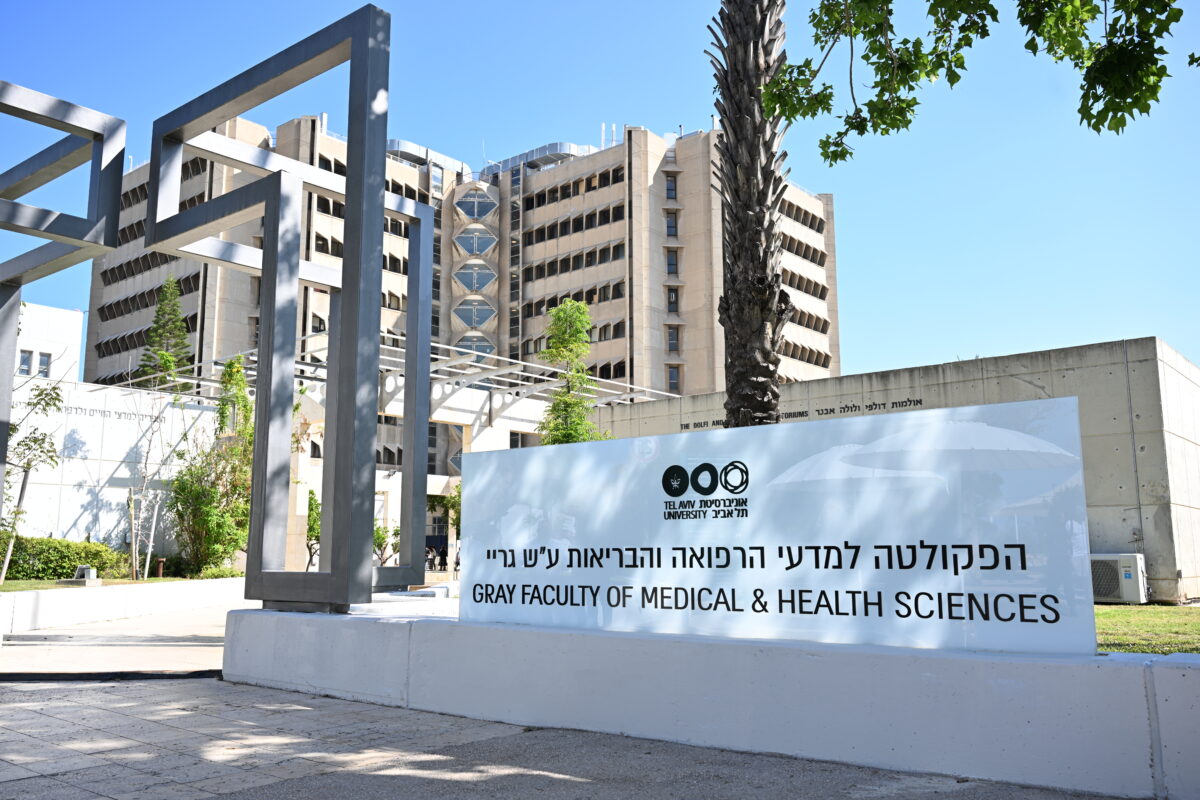For Michael Held, last week’s groundbreaking on The Bhatia Family Village, a new housing community for neurodiverse adults in the heavily Jewish Pico-Robertson neighborhood of Los Angeles was “as perfect as it could be.” The project had been years in the making, but standing with his partners in the effort, shovels in the dirt in an audience of community leaders, “there was really a feeling of joy,” Held told eJewishPhilanthropy.
Held is the founder and executive director of ETTA, an organization that launched in 1993 to provide programs and services to adults in the Jewish community with developmental disabilities, now often referred to as Intellectual/Developmental Disabilities, or I/DD. Though Held and his organization are Jewish, The Village will cater to people of all backgrounds, providing services to residents based on the input of neurodiverse adults and their family members, as well as the “philosophy of inclusion that’s become part of the disability world,” Held said.
Within a few years after ETTA’s creation, the families who benefited from its services were already asking about long-term housing, and today the organization’s residential services department, named after local philanthropist Jack E. Gindi, runs four group homes in the Los Angeles area. Each of the homes has a maximum capacity of six adults with various intellectual and developmental disabilities such as autism and Down syndrome. About eight years ago, the organization also started supporting people who lived in apartments but needed one-to-one support to be independent. Between the group homes and the apartments, ETTA currently supports 50 adults with developmental disabilities.
“ETTA and many other organizations, both locally and nationally, have gotten involved in teaching communities about inclusion and creating inclusive practice, at schools and recreational programs, camping and so forth,” said Held, also the executive director of Cornerstone Housing for Adults with Disabilities, a separate 501(c)(3) spun off from ETTA to manage the real estate development of the project. “But the hardest thing to tackle is housing because it’s expensive and permanent.” The people behind The Village hope that their efforts will help make better housing an option for people with I/DD, especially as many of their caretakers are aging. According to the California State Council on Developmental Disabilities, more than 80% of people in the state with I/DD live in a family home, and 62.6% of them — about 102,755 — are living in a family home with an aging caregiver.
Prospective residents of The Village must have the capacity for independence, meaning they can handle their own medications and hygiene, and don’t require an overnight staff member devoted to their care. Some of The Village’s trained staff will be available as needed overnight but will not stay in residents’ apartments (unless there’s a specific physical disability or a safety issue). Formal admission parameters and registration will be online in January of 2024.
Rents will be local market rate —approximately $2,000-$3,500 for studios, one-bedroom and two bedroom units — with eight of the 64 apartments reserved for lower-income people and approximately 10 for neurotypical residents to “add some balance to the building,” as Held put it. “Some [of the latter residents] may be in graduate school in a relevant field, or may want to be part of the mission of what this building represents,” he added. Residents are likely to be in their mid-20s and older, but there is no upper age limit.
All of the residents in ETTA’s group homes receive entitlements through the California regional center system, which assesses individuals’ needs and provides financial support accordingly. Through its “self-determination” program, the Department of Disability Services (DDC) may provide an adult living independently with between $60,000 to $300,000 annually based on the level of support that is needed for them to live safely and independently, “meaning, the more severe the challenges, the more support they receive,” Held explained. The amount of benefits for adults with intellectual and developmental disabilities varies state to state, with California among the more generous states, he added. People who apply for residency at the Village may be able to use some of those benefits to defray housing and/or additional care costs.
Because neurodiverse adults often experience loneliness, as well as difficulty in starting relationships or knowing what activities to do, ETTA specialists will be on-site to promote fitness, health and wellness and steer residents toward work in a rooftop garden, Held said.
Anita Bhatia, executive director of the Ramesh and Kalpana Bhatia Family Foundation, which is supporting The Village with a donation of $5 million, said this was a personal issue for her family.
“As the parent of a neurodiverse teenager, I am acutely aware of the housing crisis in our country for children like mine,” she said in a statement.
“That is why our family is proud to invest in innovative and forward-thinking solutions for the developmentally diverse community like The Bhatia Family Village. This game-changing project exemplifies what can be accomplished when families, community members, business leaders, and government officials work together towards a singular purpose. Our hope is that this will be the first of many ‘Villages’ throughout the United States,” Bhatia continued.
Previous North American efforts to create supported, independent apartments have been situated in suburban or more rural areas, where land is less expensive, Held said, but the Cornerstone board, which includes Jewish real estate developer and philanthropist Kam Babaoff, rejected that option as it would, in effect, cut off people with I/DD from the city and from local Jewish community.
“It’s contrary to our values: respect the dignity of each person who has a disability is a core Jewish value, that we’re the same,” Held said. “They have the same heritage, the same God, the same capacity to be part of a community.” He added that none of the other projects that provide housing for neurodiverse people provide proximity or integration with a neurotypical population.
“The existing models do a good job of providing a nice environment for an adult who’s neurodiverse, quality programming and support. And they all tend to give the families a lot of peace of mind, because their adult kids are living in a healthy environment,” Held said. “But when we think of Jewish values…it’s hard to imagine feeling successful and contributing to a Jewish adult’s life by putting them in a setting that’s 40 miles from the Jewish community. That’s something that the board of directors took to heart to pay a premium to be in the Pico location,” he said.
The organization has already raised $26.5 million toward the $67 million projected cost of that premium: $17.5 million in private donations and $9 million from the California state legislature. Cornerstone’s funders include a number of donors above the million-dollar level, many of whom have children with disabilities, “and community members who are charitable and understand the necessity of our Jewish community stepping up to develop this project,” Held said.
“Like every human being, adults with I/DD deserve the option to live in an independent, supportive community,” Eric Schwartz, Cornerstone board member and parent advocate, said in a statement. “Unfortunately, when it comes to housing in Los Angeles, the deck is stacked against them. However, The Bhatia Family Village presents a model of a community where like-minded people can understand, support and cheer for each other.”
With the board prioritizing values over financial concerns, the organization successfully identified the property on Pico near Glenville, across the street from Young Israel of Century City and the Happy Minyan, and a stone’s throw in either direction to a number of other prayer options. “It’s a natural location for inclusion, meaning opportunities to participate in existing Jewish life and synagogues, community center, opportunities for jobs, easy access to transportation, opportunities for volunteering,” Held said.
Cornerstone has deep roots in the Los Angeles Jewish community, and the Village was inspired by and built on foundational Jewish values of inclusion and dignity, Held said. “Based on those values, it was important to us to create a space that is open and inclusive to all people who have intellectual and developmental differences.”
Although most people involved in the project are Jewish, the Cornerstone website deliberately uses more general language to convey the universal values of inclusion, Held said. Also, because the organization has tax-exempt bond financing, its policies are non-discriminatory, and Cornerstone is not a religious institution. The Bhatia Foundation isn’t Jewish either, but connects to the Village through its mission to support “intellectual and physical diversities.”
The ground floor of the building is intended for retail, where residents will also be able to work. “Whatever retail operation we [sign] a lease with will be obligated to hire individuals with developmental disabilities,” Held said.
The Village will also feature a large open space for programs, lectures, classes and meetups. “There’ll be a lot of natural organic points of connection because people know each other,” said Held. “So the people in the neighborhood will know people living in the village…we hope and expect that residents will want to invite people from the neighborhood into the building. So we see a lot of opportunities for a meaningful type of relationship-building with the community.”
Credit:Source link



